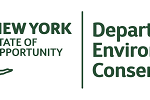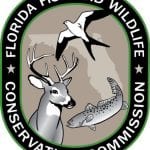State Fish and Wildlife Conservation Agency Transformation: An Annotated Bibliography
The articles in this document were annotated by Ann Forstchen (Florida Fish and Wildlife Conservation Commission) in support of the Blue Ribbon Panel Relevancy Working Group. They are organized by date of publication and is still a work in progress. Please contact Ann at Ann.Forstchen@myFWC.com for more information.
The entire annotated bibliography can be downloaded here. See below for an executive summary of the literature.
Executive Summary
- Fish and wildlife (hereafter wildlife) is shifting to people and habitat management
- It’s all wildlife for all people (not just focus on game or non-game)
- State fish and wildlife agencies (SFWA) are broadening programs and activities to serve more citizens
- SFWAs funding sources are broadening beyond direct and sole support from license/permit sales – albeit it slowly (process can take 10+ years to implement)
- License plates, foundations, sales tax, lottery, residential sales tax, etc.
- All SFWAs are addressing social, political and ecological changes and impacts – in their own way, at their own pace and in their unique social-political environments
- SFWAs need to acquire and apply insight from broad arena of conservation social sciences (see Bennett et al graphic)
- SFWA transformation is not about changing commission or board structure, selection process or function but is about changing individual staff thinking and actions that seek out, understand and serve more diverse stakeholders and all citizens
- Communication is key. Words matter (e.g., outdoors vs. outside). Communication strategy development is critical (why, when, by who, to whom, through what channels, how often)
- SFWAs face challenges that are adaptive, not technical – we can’t engineer our way out of them
- SFWA change needs to be strategic to be successful
- Relevance of wildlife conservation (and thus relevance of SFWAs) is from the perspective and judgement of citizens not SFWAs
- SFWAs can learn how to be relevant from private sector successes and failures
- Successful change efforts focus on the work – corporate “fixes” (strategic plans, mission statements, marketing slogans, modifying formal structures and systems) don’t change organizations; people change organizations
- Leadership commitment is essential for creating conditions ripe for change and breaking down obstacles
- Learning will be required
- Resources will need to be acquired or reprioritized
- Evaluation of progress is critical
- Leadership must walk the talk
- Recognize and accept that wildlife conservation is in the outdoor recreation business
- SFWAs need to better market conservation benefits to all citizens
- SFWAs need to focus on short-term but also long-term which is difficult in era of short-term political cycles and increasingly shorter tenure of SFWA directors
- Dedicated change agents are critical for success
- Shift in terminology reflects shift in SFWA focus (Clients (customers) à stakeholders à beneficiaries
- Transformation/ SFWA relevancy is a journey not an event
- SFWA staff slowly are representing citizenry (don’t hunt, trap, fish)
- Recent awareness and acceptance of public trust framework for wildlife management supports efforts for SFWA relevance
- Wildlife management is the guidance of decision-making processes and implementation of practices to purposefully influence interactions between people, wildlife and habitats to achieve impacts (benefits) valued by stakeholders (citizens)
- SFWA relevance is a means to wildlife conservation relevance
- SFWAs are moving to become bridging or platform organizations rather than being the sole provider of conservation benefits
- Principle role of SFWA is to provide benefits for people
- Peoples interests in wildlife and their management is changing; expectations for involvement in decision making has increased
- Delivery of conservation benefits includes reducing negative impacts from wildlife
- SFWAs struggle to work well in the political arena (missing skill set)
- Declining %s of participating in traditional outdoor recreation, coupled with increasingly diverse and urbanized society creates the need for SFWAs to adapt to changing societal context
- Need to overcome the historical SFWA financial dependence derived from hunting and fishing without alienating these traditional stakeholders
- Transformation of the actions and practices of SFWA should not diminish the importance of traditional stakeholders and their essential role in wildlife management
- Incremental and radical innovation may be needed depending on SFWA context
- Organizations that chiefly pursue existing competencies (those things we already know how to do) will suffer from obsolescence
- SFWAs need to hire for what they want to become, not what they are
- Deliberative transformative change can be initiated at multiple scales and be done gradually
- Transformation can be done BY you, or TO you
- Continued fragmentation of conservation interests (factions) is certain to result in conservation loss
- Under public trust framework, legislators and commissioners, to whom legislators have delegated specific authorities, are the primary trustees of the publics’ wildlife; state wildlife agency professionals are trust managers; all citizens are beneficiaries of the trust
- SFWAs should continually scan social, economic and ecological sectors for emerging issues that could influence wildlife conservation
- SFWAs need to learn from each other
- SFWAs need to acknowledge NGOs and partners are legitimate part of conservation institution and have important and significant contributions to conservation
- SFWAs need to find common ground with NGOs and partners and leverage their resources but recognize their constraints
- Shift from wildlife population focus to conservation system focus
- Benefits desired from the wildlife trust may change over time and across generations; flexibility of management strategies is prudent
- Relevance means have a logical connection to or some bearing of importance for real world issues of social significance (e.g., the economy, job creation, energy development, transportation, health care, education, climate change) and being recognized as having such a connection
- Relevance alone is not sufficient, conservation and conservation agencies must be valued and supported
- principles of a relevant, valued and adaptive agency
- Contemporary with respect to social values, needs, and interests
- Wildlife-values focus (rather than wildlife-use focus)
- External orientation—engage partners, understand stakeholders, form coalitions
- Good governance (e.g., open, transparent, inclusive, and fair decision-making processes)
- “Safe haven” work environment where opinions are freely expressed
- Receptive to new perspectives and alternatives; risk taking within reason
- Anticipatory, proactive, and responsive
- Nimble and flexible
- Evaluative and continually learning, improving
- Accountable; proactively seeking feedback
- Strong and broad scale partner relationships
- Coupled social-ecological systems approach
- Some in the conservation community suggest part of the solution to wildlife management agency financial solvency is to convert the nonpaying consumers to paying customers
- attempts to broaden agency funding through this type of conversion generally have not been successful
- Using a public trust framework for wildlife conservation eliminates the need to distinguish between consumers and customers
- SFWAs need to examine their thinking, terminology and behaviors as they shift from an economics-based focus on consumers, customer, clients, etc. to a more inclusive trust-based focus on “conservation beneficiaries” – these beneficiaries should recognize the benefits they receive from fish and wildlife management and they value and support conservation even if they don’t directly participate in outdoor wildlife-related activities
- Celebrate the rich conservation history over the past century, but recognize that leaning on our history, particularly regarding outdated organizations structure and how we relate to traditional social and cultural interests, may be a barrier for change
- SFWAs need to work on where they want to be in 20-50 years not just in the next budget or strategic planning cycle
- SFWAs need to bring stakeholder groups together by leveraging their common interests
- Shift from reactive problem solving to co-creating the future
- Ineffective leaders to make change happen
- Tools and resources are available to help SFWAs change
- Governance = the practices and procedures that determine how decisions are made and implemented and how responsibilities are exercised





